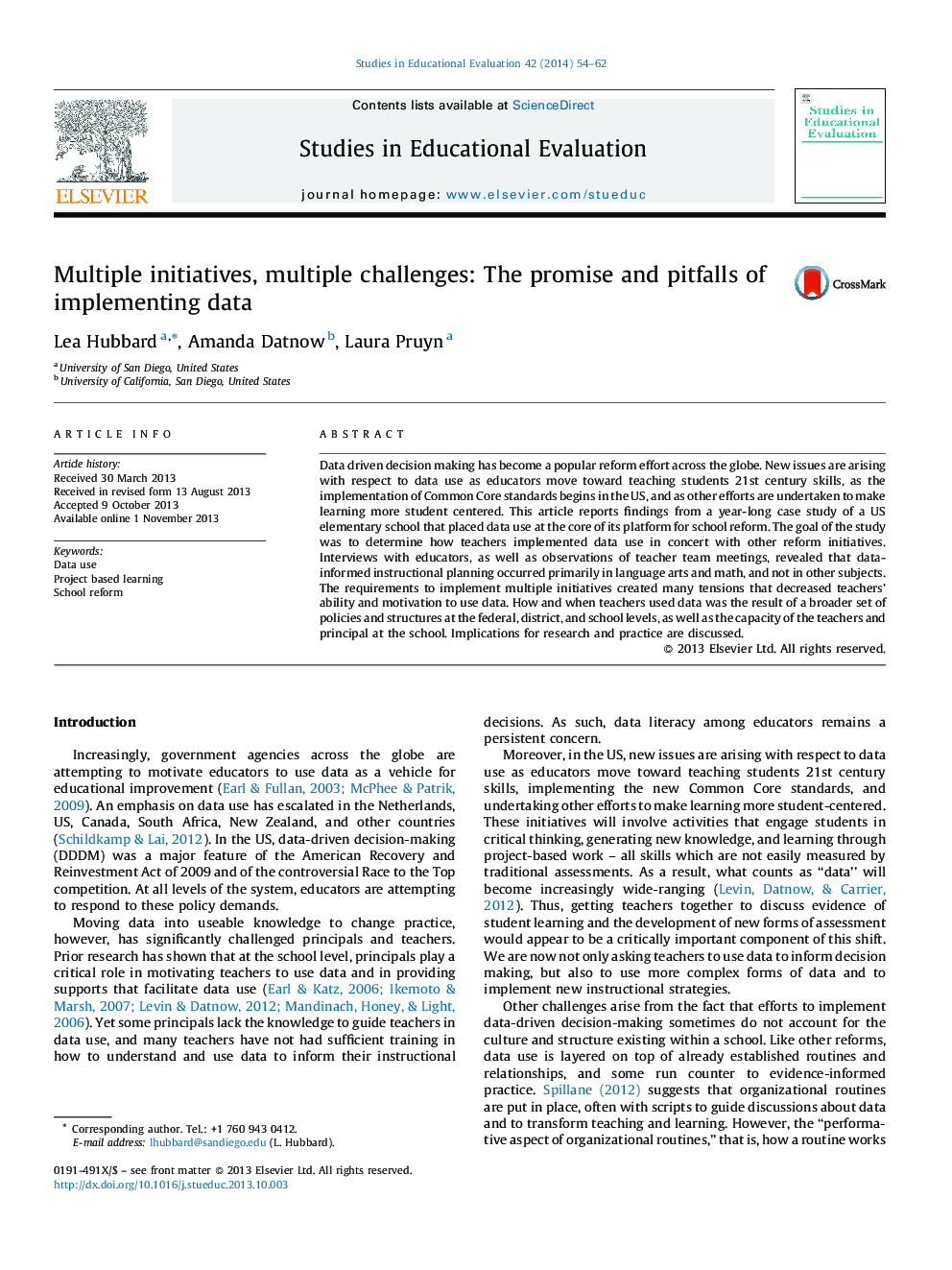| Article ID | Journal | Published Year | Pages | File Type |
|---|---|---|---|---|
| 372600 | Studies in Educational Evaluation | 2014 | 9 Pages |
•We examine how multiple reform initiatives create many tensions that affect data use.•We explain how policies and structures at the federal, district, and school levels impact data use.•We show how historical, institutional and cultural factors influence data use.
Data driven decision making has become a popular reform effort across the globe. New issues are arising with respect to data use as educators move toward teaching students 21st century skills, as the implementation of Common Core standards begins in the US, and as other efforts are undertaken to make learning more student centered. This article reports findings from a year-long case study of a US elementary school that placed data use at the core of its platform for school reform. The goal of the study was to determine how teachers implemented data use in concert with other reform initiatives. Interviews with educators, as well as observations of teacher team meetings, revealed that data-informed instructional planning occurred primarily in language arts and math, and not in other subjects. The requirements to implement multiple initiatives created many tensions that decreased teachers’ ability and motivation to use data. How and when teachers used data was the result of a broader set of policies and structures at the federal, district, and school levels, as well as the capacity of the teachers and principal at the school. Implications for research and practice are discussed.
